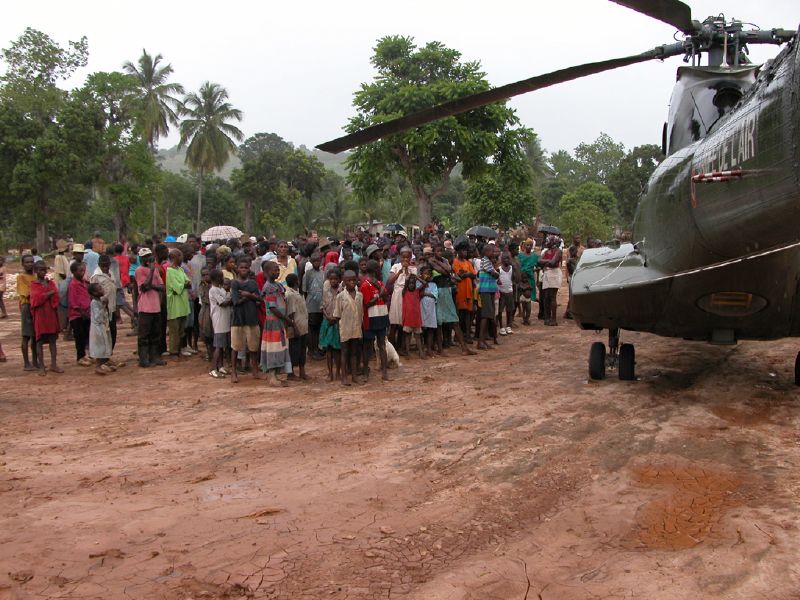Foreign Aid to Haiti: How the US and Ecuador Are Helping

In 2021, Haitian President Jovenel Moise was killed in his own home in an attack planned by individuals from Columbia all the way to the U.S. The current situation in Haiti remains hostile as a result, with street gangs perpetrating intense acts of violence — violence that is only possible with consistent political instability, insecurity and poverty in Haiti.
Those factors have massive effects on its people, many of whom are living in severe poverty on top of being under constant threat. It starts from the top down; nearly 66% of the capital city of Port-au-Prince is under that threat. With no stability in the capital, the outer regions of the country can not gain a foothold themselves, and the unemployment rate rises as businesses are forced to close, driving poverty rates.
Because of the violence taking place, more than 160,000 people are internally displaced which has hindered NGO aid efforts including CARE and the International Organization for Migration, the latter being boots on the ground providing access to clean water and health services in the most dangerous regions. Change is needed at the source and both the U.S. and Ecuador are stepping up efforts to fight poverty in Haiti. Here is some information about foreign aid to Haiti.
Foreign Aid to Haiti to Help With Stability
Ecuador played a role in discovering who took part in the plot against the country’s president, offering a chance to hold those involved accountable while closing the door on a solemn time in Haitian history. It shed light on Columbia due to the perpetrators residing there but also because of an Ecuadorian presidential candidate who suffered the same fate as other armed men based in Colombia. Venezuela voiced its support for Ecuador’s claims by saying a “gang of Colombian hitmen” committed political violence outside Colombian borders.
The United States backed support with action by signing the December 21 Accord, along with a host of other political actors and civil society groups, that aims to establish a new transitional and representative government that will lead to free and fair elections by the end of 2023. United States Ambassador Robert Wood stated the accord is “an opportunity for Hattians” to work towards bringing stability to the country by “improving governance.” Ecuador was crucial to the negotiations and drafting of the resolution that relied heavily on international support.
Foreign Intervention
In late 2022, Prime Minister Ariel Henry made a plea for armed, multinational support. Kenya stepped forward volunteering to lead such a force, with UN Secretary-General Antonio Guterres supporting the deployment, believing it needs to be both “robust” and “rapid.” The U.S. previously said it would provide foreign aid to Haiti, and with Ecuador, introduced a resolution to the United Nations that would authorize the deployment; an action that long-term, is designed to bring stability to and fight poverty in Haiti by the U.S. and Ecuador.
The Haitian people back the force because it is a way for the country to push out street gangs, which are the root cause of much of insecurity and poverty in Haiti. Reuters reports that around 70% of people would support it in coordination with the national police.
Both countries reiterated their support for Haiti at the United Nations Security Council meeting in early 2023, with the U.S. saying it is encouraged by the outpouring of support and Ecuador acknowledging the efforts of the national police under the conditions. Haiti lacks the resources to “resolve this crisis alone,” said Victor Généus, Haiti’s Foreign Affairs Minister and the security risk that Haiti is facing, is a security threat to the whole region. Stopping it at the source is mutually beneficial for many near the small Caribbean nation.
– Benett Crim
Photo: Flickr
